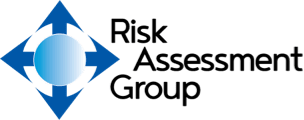When creating the background screening RFP for your company, what’s your process? Do you steal a copy from a competitor? Or maybe you download something from the internet?
What exactly goes into an effective, constructive application? What are the most important things to include for your industry and your business in particular? Let’s take a look.
Qualifications
Hiring a background screening company is different than hiring other vendors – particularly if you are seeking an accredited company. You can save yourself quite a bit of time and reading by trusting the Professional Background Screening Association's (PBSA) accreditation process.
When you choose an accredited firm, you can trust that the most important protocols and industry standards have been thoroughly vetted and are met by the company.
For instance, it's common to ask for a detailed explanation of our company’s understanding of the Fair Credit Reporting Act. We wouldn't be accredited if we did not fully comprehend the legal implications and privacy components of that legislation. The same holds true for the protocols we use in terms of hiring and emergency procedures.
Every year people download RFP forms from an online template. They are easy to spot because they always include questions about physical goods rather than services. It might be a good starting reference point, but it is highly recommended that you avoid the temptation and create a proposal that will keep the information relevant to the task at hand.
Three Most Common Pitfalls
The questions you ask are critical because seemingly reasonable, easy inquiries often require complex answers. Here are some tips on how to get the answers you are really looking for.
Pitfall 1-Turnaround Time: This is the one we see most often. Of course, companies want to know how long we'll take to get the job done. But the honest answer is 'it depends.'
With more than 3,200 county courts nationwide, search results can vary from 72 hours to five days. Many still don't store records electronically, and it’s quite possible, especially in more rural areas, that the most recent three years are located on-site, while anything older is stored in a building down the street that they visit no more than once a week.
Try this instead: Asking for details on how potential delays are communicated will get you the answer you really need to make a decision.
Pitfall 2- Messaging on Fees: There are too many variables to be vague about fees. For example, there's a standard cost for an education search. However, some universities add an extra $10-15 per verification, while other universities don't charge at all.
Try this instead: Ask what our fees are for automated verification on the most commonly used systems, such as the Work Number by Equifax and the National Student Clearing House.
Pitfall 3-Packages & Pricing:Do you request bundled or package pricing in your RFP’s? Don't break down cost using an “a la carte” method because this makes it nearly impossible to compare 'apples to apples'. When packages include county level background searches, and you want to cap the search, specify that. Otherwise, you may only get info on the cost of the two or three most recent counties and one name.
Try this instead: The best approach is to include all names and all counties and clarify that in the bid. Americans are simply too transient to not include all counties. Any other approach can lead to things getting missed, which then becomes your responsibility.
Compliance System Functionality
Consider waiting until you have narrowed your search to begin reviewing the nitty-gritty functionality of a system. An actual demonstration of the company’s system is going to give you a much better understanding of how it operates than having us send you pages of screenshots. We vendors love to show you what our system can do, but is wading through pages of PDFs really the best use of your time?
Ask this instead:
- Does your system geocode for compliance? You want to be sure that the company is using the different (compliant) forms based on the employee's region.
- Can we view video links of the system functionality? (consider accepting video links instead of screenshots)
- Can you provide us performance milestones for functionality? If a system can do one simple activity – you can be confident that the system can perform another. For example: if a system can email authorization forms to a candidate you can rest assured that this process is secure if the company is PBSA accredited. Furthermore, if a provider system can offer parent account status then it goes without saying that invoices are customizable.
Top 4 Pro Tips
I'm always surprised to see some important questions missing from RFPs. Are you asking the following?
- When conducting professional credentialing such as employment and education verifications, how many calls will you make before you close requests?
- Is it part of your service to contact candidates when information doesn't match?
- Do you charge an extra fee for contacting candidates?
- Who is your legal counsel? (Good firms will have good legal counsel)
Bonus Tip:
Is customer service important to you? If so, consider asking whether a company will talk to candidates, what kind of ongoing training reps have or how often a company will meet with you.
You're already asking all the right questions when hiring an employee. It's just as important to ask the right questions when hiring an employment screening company. Are you there yet?


